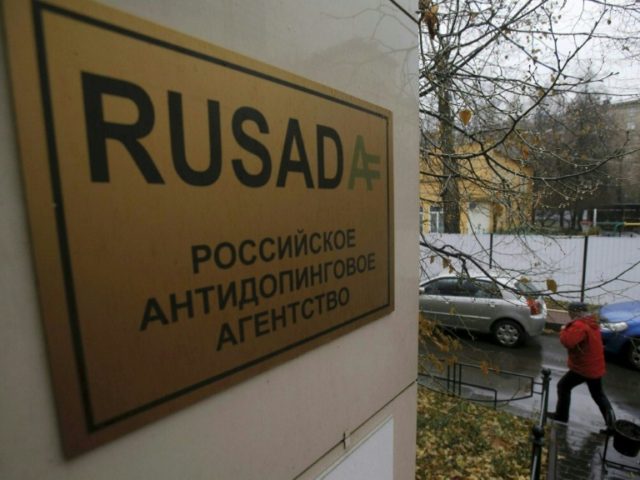Victoria (Seychelles) (AFP) – The World Anti-Doping Agency (WADA) on Thursday lifted a ban on Russia’s anti-doping agency, RUSADA, paving the way for Russian athletes to return to competition across all sports.
Here are the main events in the long-running Russian doping controversy:
– December 2014 –
German broadcaster ARD airs documentary alleging systematic doping in Russian athletics. A week later, Russian athletics chief and the treasurer of world athletics body IAAF, Valentin Balakhnichev, and IAAF marketing consultant Pape Massata Diack, son of then-IAAF president Lamine Diack, step down. The World Anti-Doping Agency (WADA) sets up an independent commission headed by its former chief, Dick Pound, to investigate the claims.
– August 2015 –
ARD airs a second documentary with new accusations aimed at Russian and Kenyan athletes based on a leaked IAAF database with details of 12,000 blood tests from 5,000 competitors which revealed “extraordinary” levels of doping.
– November 2015 –
WADA’s report calls on Russia’s track and field team to be banned from international competition, including from the 2016 Rio Olympics, until “state-sponsored” doping is eradicated. The IAAF suspends the Russian athletics team. WADA also suspends Russia’s national anti-doping body, RUSADA, over non-compliance.
– January 2016 –
WADA’s second report into doping and corruption is published. It says high-ranking IAAF officials must have known about the wide scope of doping.
– May 2016 –
Grigory Rodchenkov, the former head of Moscow’s anti-doping laboratory, goes public with details about an organised Russian doping campaign at the 2014 Sochi Olympics.
– July 2016 –
Barely two weeks before the Rio Olympics, Canadian law professor Richard McLaren releases an explosive report for WADA which outlines state-run Russian doping at the Sochi Olympics and other major sports events. WADA calls for Russia to be banned from Rio.
The International Olympic Committee (IOC) stops short of an outright ban and says individual sports federations will have to decide whether to allow Russian athletes. The IAAF suspends Russia, as does the International Paralympic Committee.
– December 2016 –
Second part of McLaren report is published, alleging state-sponsored Russian doping between 2011 and 2015, with sample-tampering at the 2012 London Olympics and Sochi 2014, where Russia topped the medals table.
– December 2017 –
Vitaly Mutko, Russia’s deputy prime minister, uses a speech before the draw for the 2018 World Cup in Russia to slam doping allegations as “an attempt to create an image of an axis of evil”.
Following its own investigations, the IOC bans the Russian Olympic Committee from the Pyeongchang Games but says clean Russian athletes will be able to take part as neutral competitors. Mutko receives a lifetime Olympic ban.
– January 2018 –
Russian Olympic officials say that 168 of their athletes take part in Pyeongchang. CAS (Court of Arbitration for Sport) registers an anti-doping case against bronze medal-winning Russian curler Alexander Krushelnitsky.
– May 2018 –
WADA contacts RUSADA, offering a compromise solution with an eye to ending the ban.
– September 2018 –
WADA lifts ban on RUSADA, paving the way for Russian athletes to return to competition across all sports. The Russian government praises the decision as the result of “enormous work” by Moscow to improve testing. But Jim Walden, the lawyer of whistleblower Rodchenkov, says the reinstatement “represents the greatest treachery against clean athletes in Olympic history”.

COMMENTS
Please let us know if you're having issues with commenting.